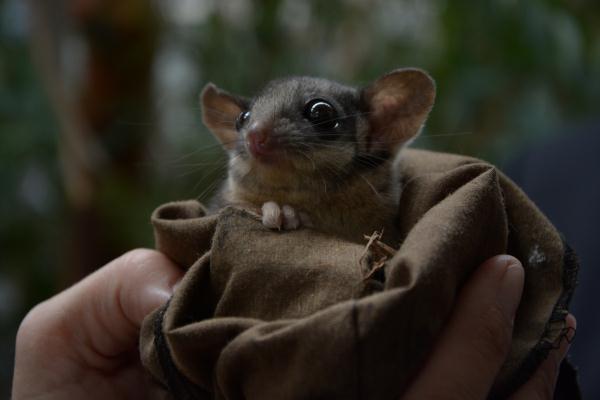
By JESSE GRAHAM
A MULTI-MILLION dollar pledge to save the endangered Leadbeater’s Possum has been praised by government ministers, but the world’s expert on the animal said measures won’t go far enough.
On Monday 14 April, Minister for Environment and Climate Change Ryan Smith and Minister for Agriculture and Food Security Peter Walsh released the Leadbeater’s Possum Advisory Group (LPAG) report and its recommendations to the public.
The group, which was chaired by Zoos Victoria and the Victorian Association of Forest Industries (VAFI) last year, released 13 key recommendations regarding timber harvesting in the Central Highlands and the possum.
Measures include a doubling of buffer zones around possum colonies to 200 metres, a two-year halt on logging in areas predicted to have possums while surveying takes place, beginning retention logging in at least 50 per cent of ash forests in the area, among other measures, with $11 million pledged to follow through on the recommendations.
However, Australian National University Professor and world expert on the Leadbeater’s Possum David Lindenmayer said he was “bitterly disappointed” with the report and recommendations.
Prof Lindenmayer didn’t mince his words in his response, and said the measures were only a tenth of what needed to be done.
“I think it’ll buy the Leadbeater’s Possum maybe five, at most ten years,” he said.
“The possum might survive 25, 30 years from now, instead of 15 to 20 years, (but) this is about 10 per cent of what is needed.”
Prof Lindenmayer said the report had ignored the 31 years of science he had contributed on the possum and the ecology of the Central Highlands forests, and said he would ask for Zoos Victoria CEO Jenny Gray to resign over the matter.
He said the only way to save the species from extinction would be to end logging and to create the Great Forest National Park in the Central Highlands area – an idea opposed by forestry groups.
However, Ms Gray said the report was a positive contribution to the future of the animal, and that the report balanced the interests of both the timber industry and the Leadbeater’s Possum.
“We went into it with an approach of looking to compromise two conflicting needs for the same resource – the possum and the timber industry,” she said.
“It was never going to be a simple exercise.”
Ms Gray said the LPAG was looking for “options that would give the best benefits to the possum with the least impact to the timber industry”, and that she was pleased with the outcome.
“There’s always more one can do for a species, but it’s a good step in the right direction,” she said.
In response to Prof Lindenmayer’s criticisms of the report, Ms Gray said the science was followed and she believed measures such as retention logging as opposed to clearfell logging would have a wider positive impact.
VAFI CEO Tim Johnston said the recommendations of the report would pose changes and challenges for the timber industry, but the industry had accepted all of them as appropriate.
“These recommendations represent significant changes to local timber industry operations which will be challenging for our industry,” he said.
“It also gives the industry certainty that the future outlook for the possum has been supported through a comprehensive package of actions.”
Mr Walsh agreed that challenges would be ahead for the timber industry, but that action needed to be taken to protect the possum while continuing to maintain the industry.
“The Victorian government acknowledges the challenges ahead for the timber industry as the recommendations are enacted, but there is now much-needed operational certainty for the future.”
Friends of Forestry (FoF) executive member Jaqui Commans said the recommendations would be “tough” on timber industry workers, but urged environmental groups critical of the report to “accept the umpire’s decision, as we have”.
The LPAG report was compiled through consultation between VAFI and Zoos Victoria, with contributions from VicForests, Parks Victoria and the Leadbeater’s Possum Recovery Team and consultation with environmental groups.
The recommendations from the report will be enacted as of 1 July, and reviewed in four years, with the exception of the 200-metre buffer zones, which will be reviewed in two years.
The report in its entirety, along with the full list of recommendations and the government’s response can be found online at www.depi.vic.gov.au






